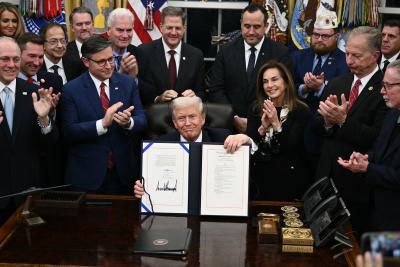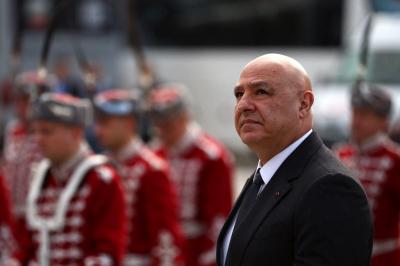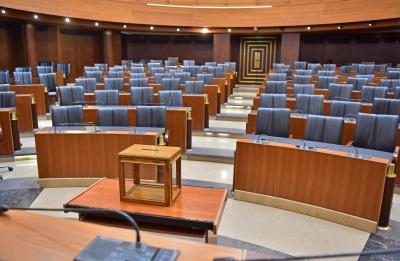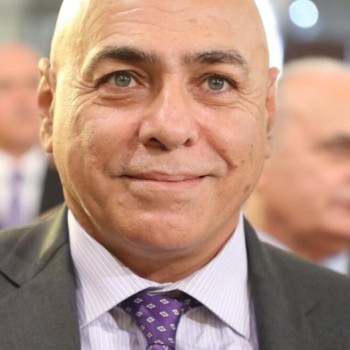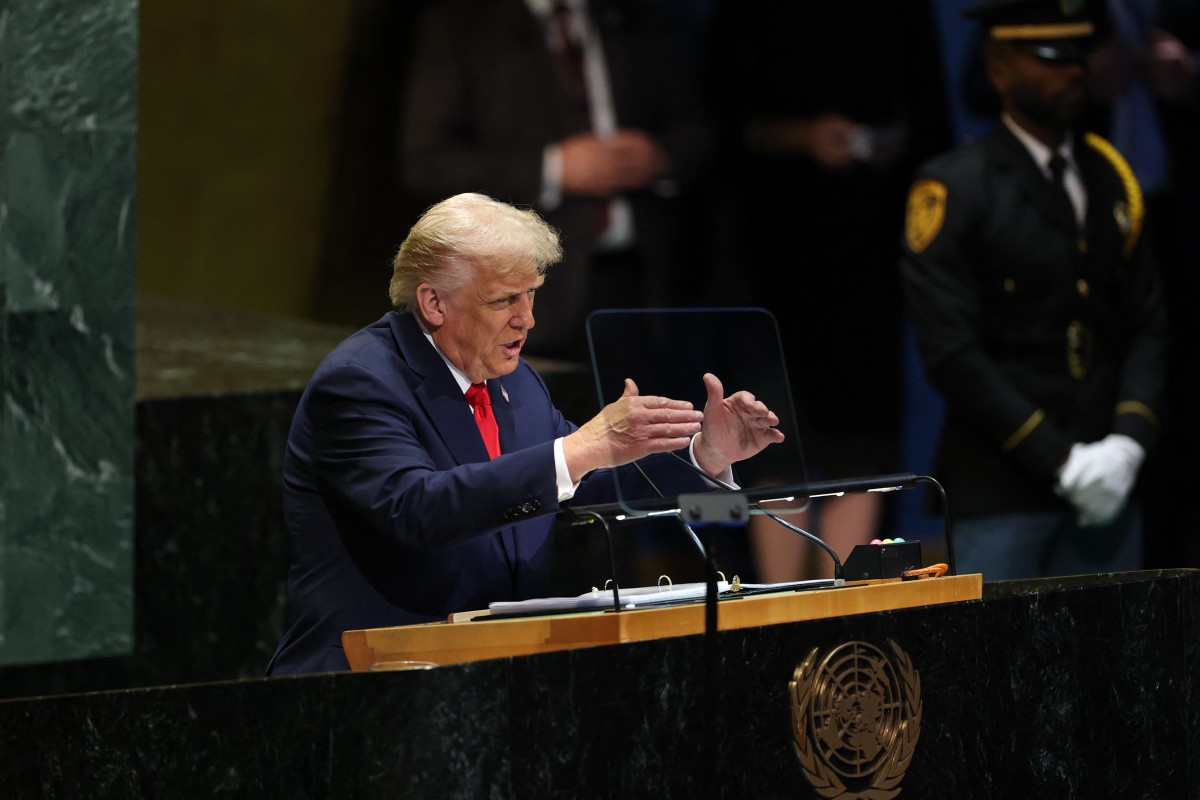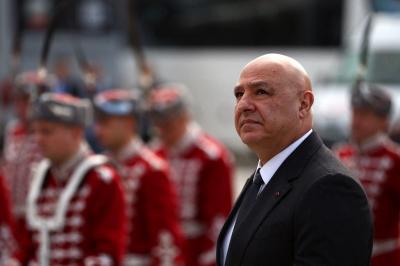President Donald Trump's keynote address to the United Nations General Assembly this past Tuesday, delivered a forceful and combative critique that crystallized the increasingly tense relationship between the United States and the United Nations. In his speech, Trump pointedly questioned the organization's very purpose, dismissing its actions as merely writing "really strongly worded letter[s] and then never following that letter up" and characterizing these efforts as "empty words" that fail to solve real-world conflicts. He contrasted this perceived ineffectiveness with his own administration's achievements, claiming to have ended "seven unendable (sic) wars" without UN assistance. His condemnation extended to international policies on migration and climate change, denouncing the latter as "the greatest con job ever perpetrated on the world." This speech highlighted the administration's profound skepticism toward multilateralism and challenged the fundamental role and effectiveness of the UN in global governance.
Trump, though, is not the first US president to censure the UN. Richard Nixon clashed with the UN in 1969 when he said he wanted to end the Vietnam War "without concessions," and before him Harry Truman raised a red flag. The US's tense stance toward the UN is rooted in a broader clash over the direction and reform of the international body. For decades, Washington has urged comprehensive reform of the UN—demanding reductions in waste spending, operational streamlining, and a sharper focus on peace and security missions. However, this call for reform is frequently selective, supporting changes aligned with US interests while resisting those that may dilute America's influence or challenge its sovereignty.
The US opposition to certain reform proposals results largely from the institution's structural and geopolitical complexities. At the heart of the resistance lies the UN Security Council, where the United States, along with the four other permanent members the UK, Russia, China, and France, wields veto power. While this veto is designed to prevent rash decisions, it also enables the permanent five to obstruct reforms that might reduce their influence or realign global power structures. The Security Council's perceived bias and unrepresentative nature, especially by regions like Africa, South America, and Asia, intensifies the debate over reform, but permanent members, particularly the United States, remain reluctant to weaken their privileged positions.
US Role in Preventing UN Reform
The United States has played a paradoxical role in the UN reform discourse. On one hand, it insists on a more efficient, accountable, and results-oriented UN, a sentiment echoed in Trump's complaints about the UN's renovation costs and operational inefficiencies. On the other hand, it blocks or impedes reforms that may undermine its strategic advantages, whether by preserving veto powers, opposing expanded Security Council membership, or limiting funding to UN bodies that criticize US policies. For instance, Washington has repeatedly withdrawn funding from and reduced support to UN agencies like the Human Rights Council and UNESCO over perceived anti-Israel bias and other disagreements.
This push-pull dynamic has led some critics to accuse America of weakening the UN at a time when global challenges require stronger multilateral cooperation. While the US administration touts reforms and demands greater efficiency, it also reduces UN funding, undermining the very reforms it claims to support. Such actions risk eroding the UN's operational capacity at a critical juncture, potentially creating a vacuum that rival powers like China and Russia are eager to fill.
Divergent Perspectives on UN 80 Initiative
The US government's approach to the UN reflects a broader skepticism about international institutions perceived as infringing on national sovereignty, a theme Trump emphasized by championing national sovereignty and warning that "the entire globalist concept...must be rejected completely and totally." Conversely, many member states and UN officials argue that reform must preserve the UN's collective mandate to address global problems like climate change, migration crises, conflict prevention, and humanitarian relief.
This divergence is actively playing out around the UN 80 Initiative, an ambitious, system-wide reform effort launched by UN Secretary-General António Guterres in March of this year. This initiative aims to strengthen how the UN serves people everywhere by improving efficiency, reviewing thousands of outdated mandates, and exploring structural changes. Secretary-General Guterres has stressed the need for agility, inclusiveness, and financial transparency—goals that require both member support and sufficient funding, including from the host country. The success of the Guterres initiative, however, depends on member state support.
Implications for Global Governance
The tension between the United States and the UN has significant implications for global governance. The UN remains the preeminent platform for multilateral diplomacy, peacekeeping, and humanitarian coordination. However, persistent US skepticism and obstructive tactics hinder progress on long-needed reforms and weaken the organization's ability to act decisively in crises.
Trump's vocal rejection of key UN roles, his transactional approach to alliances, and his call for unilateral national policies underscore a broader shift towards nationalist diplomacy that challenges the cooperative norms of the post-World War II international order. This approach complicates efforts to address transnational issues requiring global cooperation, from climate change to pandemic preparedness. Meanwhile, Washington continues to use its Security Council primacy to block resolutions it views as contrary to its interests—such as those concerning Gaza —fueling accusations of double standards and diminishing the UN's legitimacy in the eyes of many countries.
While the United States demands a leaner, more efficient UN that prioritizes American interests, its simultaneous blocking of reforms and funding withdrawals risk weakening the very institution that serves as the world's primary forum for diplomacy. Achieving meaningful change and maintaining effective global governance requires a delicate balance—one that navigates the competing imperatives of national sovereignty, global cooperation, and equitable governance.
Please post your comments on:
[email protected]
 Politics
Politics


